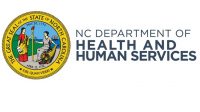Eligible North Carolina families can apply online starting Monday for help with energy costs through two state programs. 
The North Carolina Department of Health and Human Services announced Tuesday that households can apply on the North Carolina ePASS website for the Low-Income Energy Assistance Program, or LIEAP, and the Crisis Intervention Program, or CIP.
Supporter Spotlight
In addition to applying online, applicants can contact their county department of social services to apply by phone or print a paper application from www.epass.nc.gov to mail, fax or drop off at their county department of social services.
“We know that this is going to be a challenging winter for many families because of COVID-19,” said NCDHHS Secretary Dr. Mandy K. Cohen in a statement. “We want to make it as easy as possible for people to apply for help with their heating costs this winter while staying safe and socially distant.”
The seasonal Low-Income Energy Assistance Program helps eligible households pay their heating bills. Applicants can apply up to March 31 or until funds are exhausted. To be eligible for LIEAP, a household must meet the following requirements:
- Have at least one U.S. citizen or noncitizen who meets the eligibility criteria.
- Have income equal to or less than 130% of the federal poverty limit.
- Have resources, such as saving and checking accounts and cash on hand, at or below $2,250.
- Be responsible for their heating cost.
The year-round Crisis Intervention Program assists individuals and families experiencing a heating or cooling-related crisis. A household is considered in crisis if it is currently experiencing or is in danger of experiencing a life-threatening or health-related emergency and assistance is not available from another source.
CIP applications will be accepted until June 30 or until funds are exhausted. To be eligible for CIP, a household must meet the following requirements:
Supporter Spotlight
- Have at least one U.S. citizen or noncitizen who meets the eligibility criteria.
- Have income equal to or less than 150% of the federal poverty level.
- Have an energy related crisis.
- Have a utility statement that shows how much is owed to alleviate the crisis .







